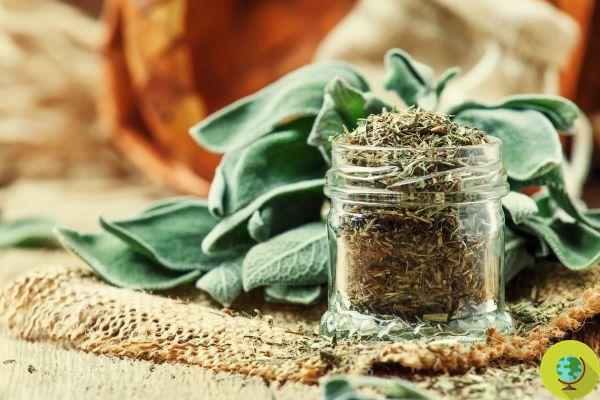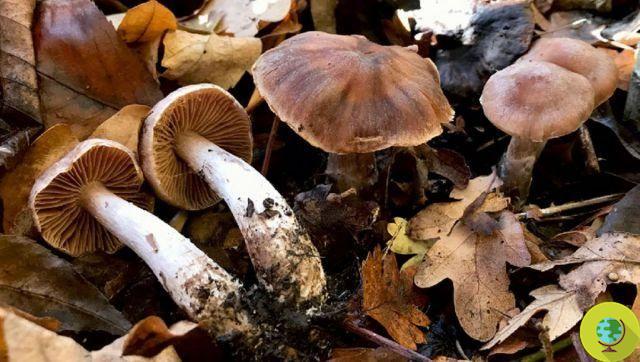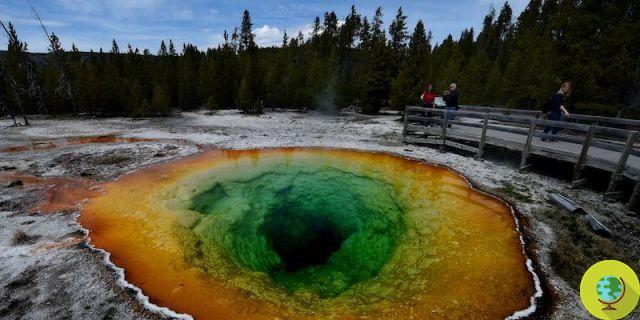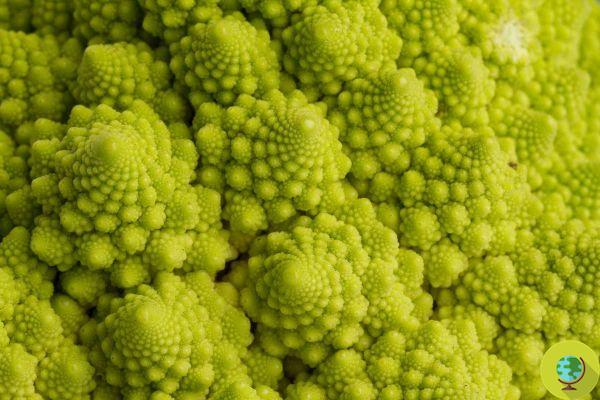 He is about to end up run over, his mother saves him
He is about to end up run over, his mother saves him
In ancient times it was considered a sacred and magical herb: let's discover the history, myths and meaning of sage.
Sage has always been considered the sacred herb par excellence, Why? Let's start by saying that it belongs to the Lamiaceae family, the same as mint and thyme. There are numerous species throughout the world, especially in temperate and tropical areas.
Apparently, Cleopatra used it to conquer men while Pliny called it "magic herb". And a poet declared: "How can a man die if sage grows in his garden!"
The particular shape of the leaves, combined with its characteristic roughness, which make it resemble a tongue, have contributed to its reputation as a healing remedy for the mouth. Just think of sage toothpastes!
According to reports from Farmacia San Giorgio, the “antiseptic, antibacterial, antiviral and antifungal properties” of the essential oil are among the clinically recognized pharmacological activities. Furthermore, it is recognized astringent properties due to tannins, which make it an excellent mouthwash. In the form of an ointment, it is useful against cold sores.
Not only that, we also have digestive and spasmolytic properties useful in case of intestinal swelling. Sage also helps regulate the menstrual cycle and stimulate memory.
Meaning
The name derives from the Latin salvus, "salvo", which was attributed to her for hers beneficial properties, recognized since ancient times.
Among other things, a Christian legend tells that only the sage plant agreed to hide the Child Jesus from the soldiers when his family fled to Egypt. And so the plant earned the blessing of the Madonna, who granted her hers therapeutic qualities.
That's why it has been defined "sacred". It was obviously a very special plant.
History, myths and legends
There are many myths, legends, popular sayings that see the sage as protagonist. At one time, as Pharmacia San Giorgio reports, it was said that in the houses where the sage grows luxuriantly, the wife rules. According to other sayings, when the sage plant dies, business dies too.
In folk medicine it was attributed beneficial properties against asthma, phlegm, colds, diabetes, asthenia, headaches, depression, frigidity and much more. While the infusion applied on sores, ulcers and dermatitis was considered miraculous.
In “Herbs between stories and legends” it is said that Greeks and Romans used it against snake bites but also for invigorate the body and memory. In medieval England it was thought to allow girls of marriageable age to see the future bridegroom. The girls had to wait for Christmas Eve and at midnight to collect 12 sage leaves, without damaging the twelfth. By doing so, the shadow of the future husband would appear in the moonlight.
The ancient Greeks and Romans also used it as natural preservative for some foods, which were covered with leaves. The Arabs thought it extended life.
A Greek legend tells that the Amalthea goat fed Zeus under a sage plant, thanks to which his milk had become incredibly powerful and fragrant.
It is said that also Nostradamus used it, mixing it with mint and savory for prepare an excellent anti-aging herbal tea.
Another legend states that the so-called “Vinegar of the 4 thieves”, produced with sage, thyme, lavender and rosemary, to protect people from infectious diseases including the plague, was used by the 4 thieves to avoid getting infected.
In short, all the legends and sayings that see it as the protagonist, enhance its beneficial properties in one way or another.
- Follow your Telegram
- Follow her Instagram
On sage also:
-
Sage: beneficial properties and uses
-
Sage: how to use it to feel better and for the beauty of skin and hair
-
You may not know, but rosemary is not rosemary: it is a kind of sage and its botanical name should be changed
-
Infusion of sage to deflate the belly. How to prepare it
-
This aromatic herb is capable of controlling blood sugar and lowering blood sugars
-
Sage: how to plant, grow and harvest women's friendly weed
-
Sage, the ally herb for women
-
Garden on the balcony: sage


























